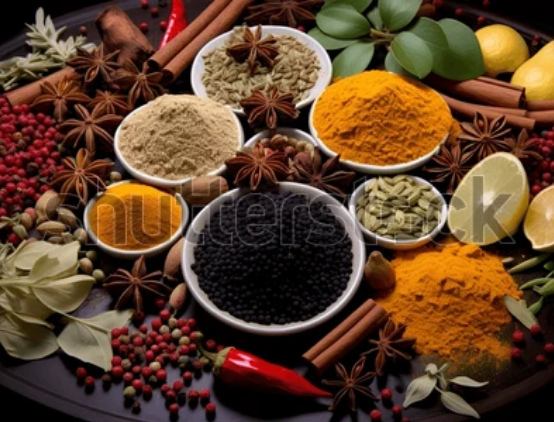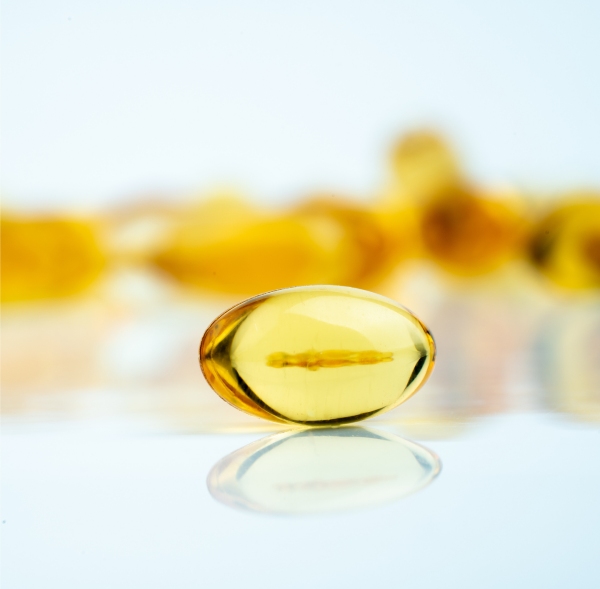Plant Extracts ('Superfoods')
Ginkgo Biloba
120 mg
Ginkgo Biloba is a unique tree that appears to have changed very little for over 200 million years. There are no related tree species left. The leaves of this "living fossil" contain phytonutrients not found in any other plant. The extract from Ginkgo Biloba leaves, along with curcumin, is among the most commonly used dietary supplements.
Ginkgo Biloba contributes to the normal functioning of the heart and blood vessels, memory, cognitive function, and mood.*
�����������
Green Tea
120 mg
The beneficial health effects of green tea are widely known and attributed to the catechins in green tea, particularly epigallocatechin gallate (EGCG). We recommend daily consumption of green tea. For those who do not want or cannot drink it, there is green tea extract. The 120 mg green tea extract in LongLife Box is equivalent to 1 to 2 cups of green tea per day.
Green Tea Extract contributes to the normal functioning of the heart and blood vessels, supports cholesterol levels, and aids in fat burning.*
�
Curcuminoids (Curcumin)
115 mg
Curcumin is gaining popularity rapidly. It is now one of the most commonly used supplements in Europe. Curcumin is a natural substance found in the root of the plant Turmeric, also known as Indian Yellowroot, commonly used as a spice in Indian cuisine. Curcumin is one of the three curcuminoids present in this healthy extract.
Curcumin contributes to normal cholesterol levels and the normal functioning of joints, digestion, liver function, heart and blood vessels, and the immune system.*
�
Panax Ginseng
115 mg
Panax Ginseng has been a cultivated crop for about 4000 years and is used in China, Korea, and Japan. The extract contains ginsenosides. Together with the extract of Ginkgo Biloba, it has been a very popular supplement in Europe for many years.
Panax Ginseng helps reduce fatigue and tiredness, supports concentration, helps maintain blood pressure, and contributes to the normal functioning of the immune system.*
�
Grape Seed
47 mg
Healthy foods include alcohol-free red wine, grape juice, and blueberry juice. They are a source of oligomeric proanthocyanidins (OPCs). One of the richest sources of OPCs is red wine, derived from the grapes from which the wine is made. A glass of red wine contains approximately 25 mg of proanthocyanidins from grape seeds. That's about the same as a daily dose from LongLife Box.
Proanthocyanidins protect cells against oxidative damage.*
�
Quercetin
40 mg
Quercetin is a substance found in small quantities in numerous foods. Rich sources of quercetin include onions and apples. The average daily diet contains about 20 mg of quercetin. LongLife Box contains an additional 40 mg, obtained from the flowers and buds of the honey tree. No life-extending effect has been proven for quercetin. However, animal studies with similar doses of quercetin suggest "adding life to years" rather than "adding years to life."
�
Resveratrol
6 mg
Resveratrol is a healthy substance found in red wine and other sources. The highest measured concentrations of resveratrol in wine are around 1 mg per glass. LongLife Box contains 6 mg per daily dose. Resveratrol contributes to the normal functioning of the heart and blood vessels.* While life extension has been observed in animal studies, there is no evidence of the same effect in humans. Research on resveratrol continues, and the substance remains highly intriguing to scientists. It remains very popular as a supplement as well.
�
Piperine
6 mg
Piperine is an extract of black pepper (it provides the sharp taste to this spice). It has been added to LongLife Box because it has a positive interaction with curcumin and green tea extract.
�
Minerals
Magnesium
150 mg (40% RDA)
Magnesium is one of the most well-known minerals. It is essential for many bodily functions. Many people use a magnesium supplement because of its clearly noticeable positive impact on the body, especially in reducing mental and physical fatigue. LongLife Box contains magnesium oxide. This form has the advantage of containing 4 to 6 times more magnesium per gram than most other magnesium compounds. Additionally, magnesium oxide (per mg of magnesium) is much less likely to cause stomach and intestinal discomfort.
�
Zinc
6.7 mg (67% RDA)
Zinc is an important mineral that is especially abundant in meat and shellfish. It occurs in lower concentrations in plant-based foods, and the body has a harder time absorbing zinc from plant-based foods. Because many people are reducing their meat consumption, we have chosen to include 6.7 milligrams of zinc in LongLife Box, which is equivalent to two-thirds of the recommended daily intake. This is not an excessively high dosage. Even with high meat consumption, it does not lead to excess zinc intake.
�
Selenium
55 mcg (100% RDA)
Selenium is a very important trace element. In Northern and Western Europe, the soil contains relatively low levels of selenium. Consequently, both plant-based and animal-based diets in this region contain relatively little selenium. Due to the low concentrations of selenium in foods, the Finnish government decided to add this element to fertilizers. Unfortunately, this has not been done in other European countries. In the United States, especially in the western part of the country, the soil is rich in selenium. The average American therefore has a selenium intake of over 100 micrograms per day. Thanks to selenium-enriched fertilizers, the Finns receive 100 to 110 micrograms of selenium. The average selenium intake in Europe is much lower, ranging from 30 to 60 micrograms. LongLife Box contains a safe amount of selenium. The daily dose (55 micrograms) brings your selenium intake to a level similar to people who consume food from selenium-rich soil.
�
Iodine
150 mcg (100% RDA)
Iodine is the most important element in LongLife Box for many people. This is because iodine is naturally found in sufficient quantities only in fish, seafood, and seaweed. Many people do not consume these types of foods. Not eating seafood would typically result in an iodine deficiency. In the past, many people did indeed become ill due to an iodine deficiency. Since World War II, iodine-enriched salt has been added to bread to prevent this. However, in addition to many people not eating seafood, there are also increasing numbers of people who eat little or no bread. Especially for them, it is advisable to supplement with iodine.
�
Vitamins
Vitamin B Complex
1.5 mg Vitamin B1 (138% RDA), 1.8 mg Vitamin B2 (128% RDA), 18 mg Vitamin B3 (113% RDA), 8.1 mg Vitamin B5 (135% RDA), 1.5 mg Vitamin B6 (105% RDA), 90 mcg Biotin/Vitamin B8 (180% RDA), 110 mcg Folate/Vitamin B11 (57% RDA), 6 mcg Vitamin B12 (240% RDA)
B-vitamins, like vitamin A, have a wide range of effects. Vitamins B1, B2, B3, B5, B6, B8, B11 (folate), and B12 contribute to the maintenance of various essential functions and organs in the body, including the heart, nervous system, hormones, skin, and immune system. They also protect cells against oxidative damage. Vitamin B12 is especially important for vegetarians and vegans.
�
Vitamin C
80 mg (100% RDA)
Vitamin C plays various important roles in the human body. It is particularly important for energy production, reducing fatigue, and supporting the immune system. This vitamin also promotes the production of collagen, which is essential for maintaining normal functioning joints, tendons, skin, bones, teeth, and gums.
* These health claims are pending approval by the European Commission.








